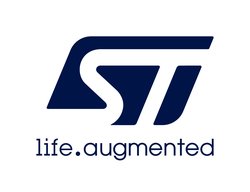NUCLEO-L476RG
Affordable and flexible platform to ease prototyping using a STM32L476RGT6 microcontroller.
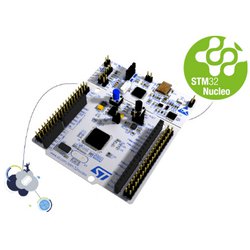
Overview¶
The STM32 Nucleo board provides an affordable and flexible way for users to try out new ideas and build prototypes with any STM32 microcontroller line, choosing from the various combinations of performance, power consumption and features.
The Arduino™ connectivity support and ST Morpho headers make it easy to expand the functionality of the STM32 Nucleo open development platform with a wide choice of specialized shields.
The STM32 Nucleo board does not require any separate probe as it integrates the ST-LINK/V2-1 debugger/programmer.
Microcontroller features¶
- STM32L476RGT6 in LQFP64 package
- ARM®32-bit Cortex®-M4 CPU
- Adaptive real-time accelerator (ART Accelerator™) allowing 0-wait state execution from Flash memory
- 80 MHz max CPU frequency
- VDD from 1.71 V to 3.6 V
- 1 MB Flash
- 128 KB SRAM
- random generator (TRNG for HW entropy)
- Quad SPI (1)
- Timers General Purpose (7)
- Timers Advanced-Control (2)
- Timers Basic (2)
- Timers LowPower (2)
- Systick
- Watchdog (2)
- SPI (3)
- I2C (3)
- USART (3)
- UART (2)
- LPUART (1)
- USB OTG Full Speed
- CAN (1)
- SAI (2)
- SDMMC
- SWPMI
- LCD 8x28 or 4x32
- GPIO (51) with external interrupt capability
- Capacitive sensing with 12 channels
- 12-bit ADC (3) with 16 channels
- 12-bit DAC with 2 channels
- Analog comparator (2)
- Opamp (2)
Nucleo features¶
- Two types of extension resources
- Arduino Uno Revision 3 connectivity
- STMicroelectronics Morpho extension pin headers for full access to all STM32 I/Os
- On-board ST-LINK/V2-1 debugger/programmer with SWD connector
- Selection-mode switch to use the kit as a standalone ST-LINK/V2-1
- Flexible board power supply
- USB VBUS or external source (3.3 V, 5 V, 7 - 12 V)
- Power management access point
- User LED (LD2)
- Two push buttons: USER and RESET
- USB re-enumeration capability: three different interfaces supported on USB
- Virtual Com port
- Mass storage (USB Disk drive) for drag'n'drop programming
- Debug port
Nucleo pinout¶
Pins Legend¶
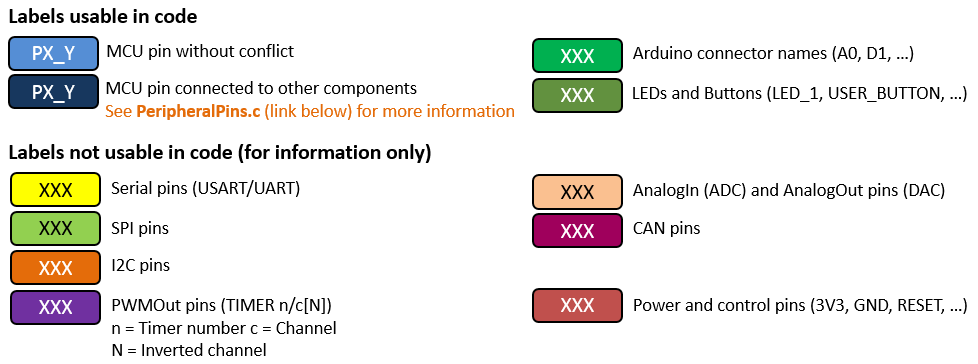
You can find more details on the available pins and labels in the PeripheralPins.c and PinNames.h files.
These files can be found in:
- ARMmbed/mbed-os repository on GitHub (up-to-date version, used with mbed CLI commands)
- mbed-dev library in developer.mbed.org (source files of the mbed library used on mbed compiler IDE)
Arduino-compatible headers¶
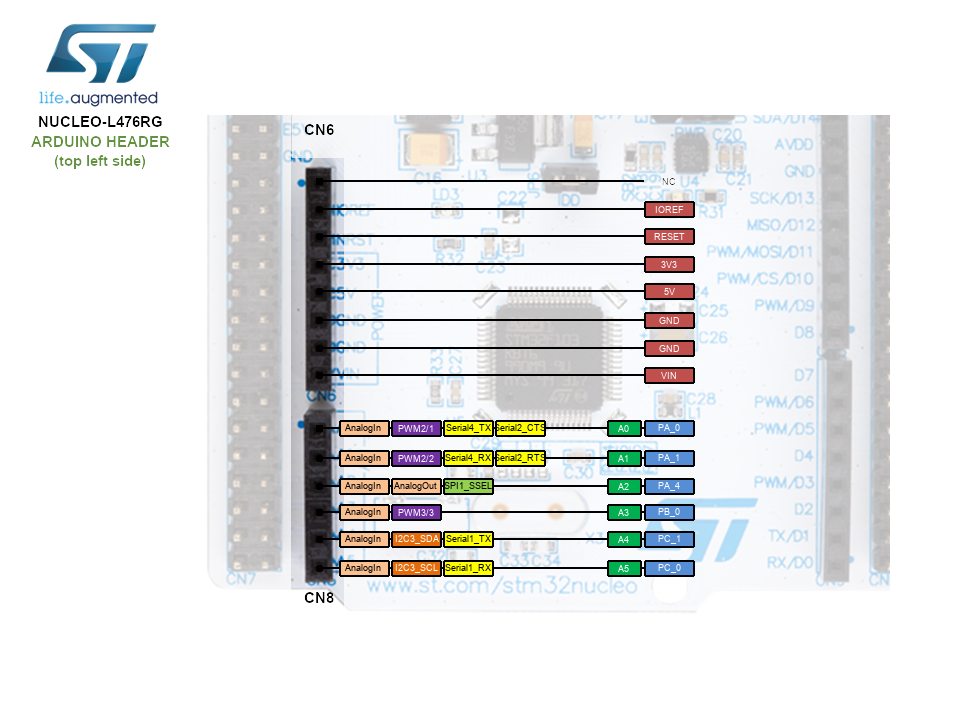
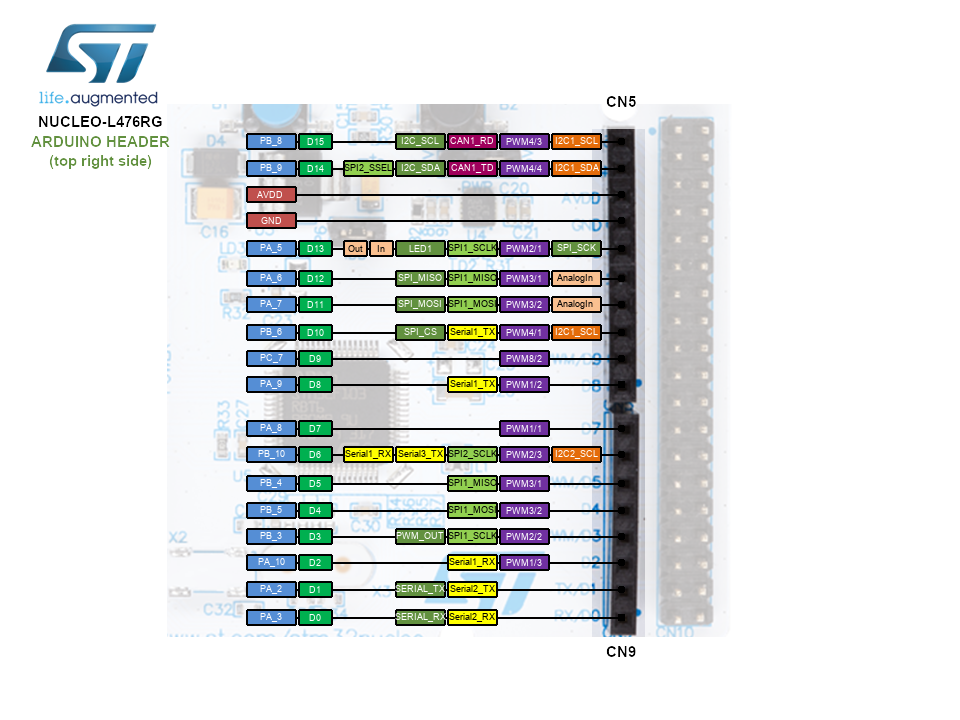
Morpho headers¶
These headers give access to all STM32 pins.
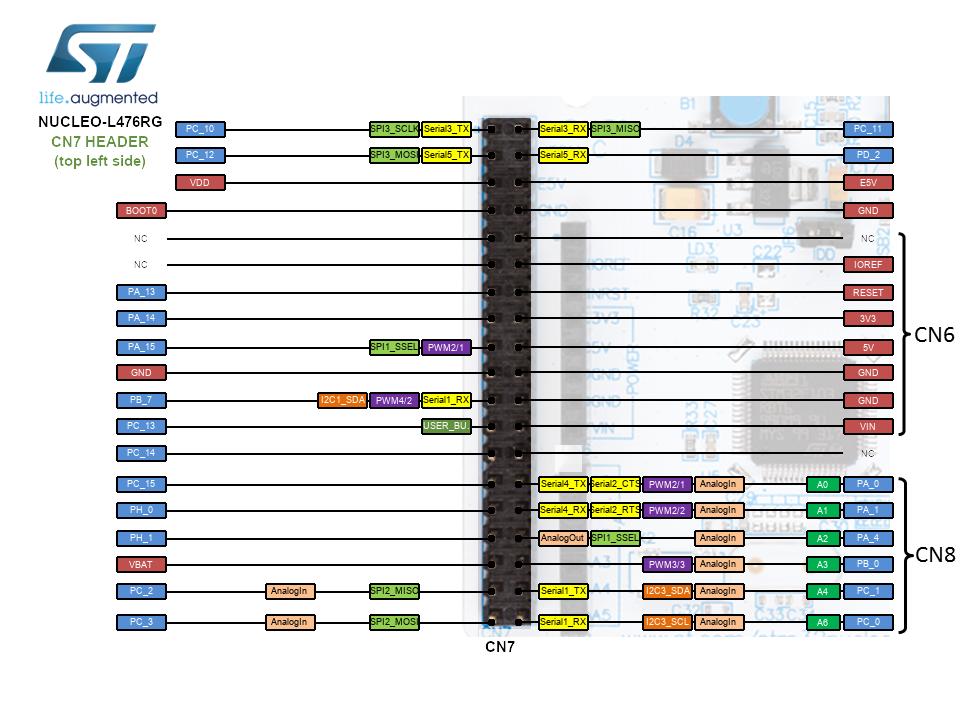
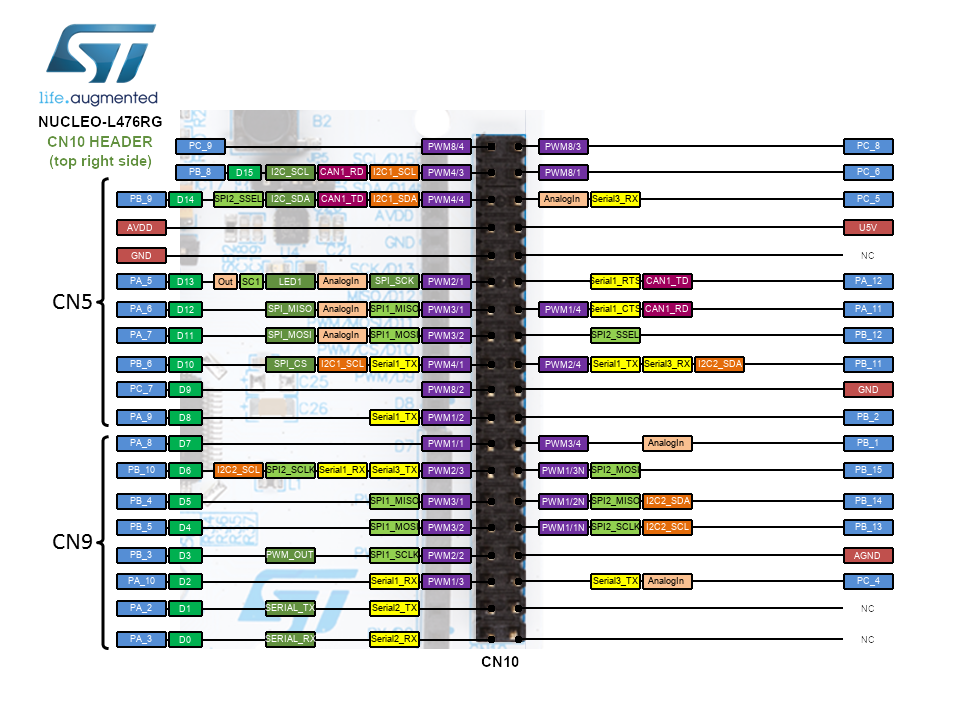
Supported shields¶
ST X-NUCLEO boards¶
Other Non-ST boards¶
See here.
Getting started¶
Nucleo ST-LINK/V2 driver installation and firmware upgrade
Technical references¶
For more information, please refer to:
Known limitations¶
The following section describes known limitations of the platform. Note that general issues are tracked into the mbed repository available on GitHub.
- On Nucleo 64-pins boards, the D0 and D1 pins are not available per default as they are used by the STLink Virtual Comm Port. More information HERE
Tips and Tricks¶
Find more information in ST WIKI pages.
You need to log in to post a discussion
Discussion topics
| Topic | Replies | Last post |
|---|---|---|
| nucleo-l476rg development board | 0 |
26 Apr 2019
by
|
| L476RG nucleo l476rg | 0 |
19 Jul 2018
by
|
| NUCLEO-L476RG, USB Does the USBDEVICE.lib work on the NUCLEO-L476RG? | 2 |
10 Apr 2018
by
|
| AnalogIn, L476RG, read AnalogIn Read giving incorrect voltages L476RG | 1 |
22 Mar 2016
by
|
Questions
5 years, 10 months ago

